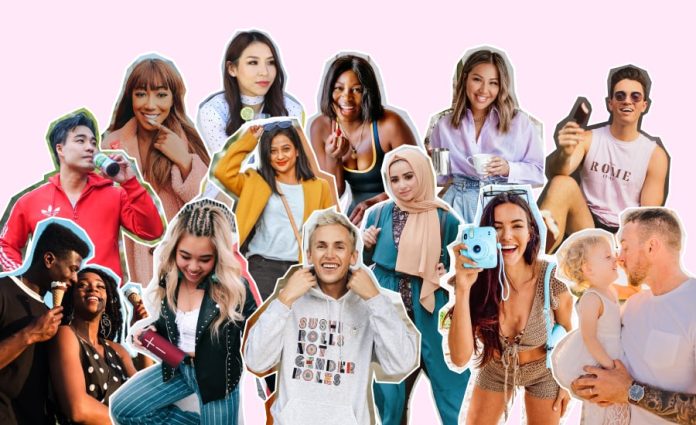The Dos and Don’ts of Working with UGC Creators
User-generated content (UGC) creators have become invaluable partners for brands looking to build authentic connections with audiences. Unlike traditional influencers, UGC creators focus on producing genuine, relatable content that resonates deeply with consumers. Collaborating with these creators offers brands a powerful way to increase trust and engagement but it’s essential to approach these partnerships thoughtfully and ethically.
This guide covers the essential dos and don’ts for working with UGC creators. By following these tips, brands can form positive, mutually beneficial relationships that respect the creator’s work while boosting brand visibility and credibility.
The Dos of Working with UGC Creators
Do Define Clear Expectations
Establishing clear expectations is crucial to a successful partnership with UGC creators. At the start of the collaboration, outline specific guidelines for content style, deadlines and deliverables. This helps avoid misunderstandings and sets a professional tone. For example, if the brand wants the creator to feature certain product benefits or stick to specific branding elements, this should be communicated upfront. A well-defined brief allows creators to understand exactly what’s expected, enabling them to deliver content that aligns with the brand’s vision while maintaining their authentic style.
Do Compensate Creators Fairly
Offering fair compensation is one of the most important aspects of working with UGC creators. Unlike general social media users, UGC creators invest time, skill and creativity to produce high-quality content. Brands should approach these partnerships as professional agreements, compensating creators according to industry standards and the scope of work. Compensation can include payment, free products or other benefits but it’s vital to ensure that creators feel valued for their contributions. Fair pay builds trust and loyalty, leading to better content and more productive, long-term relationships.
Do Give Creators Creative Freedom
UGC creators are valued for their unique perspective and creative style. Allowing them to express this creativity can make the collaboration more authentic and engaging. Rather than tightly controlling the content, give creators room to interpret the brief in their own way. This approach often results in content that feels genuine and relatable to the audience, as it reflects the creator’s personality and voice. Brands that empower creators with creative freedom benefit from content that resonates more deeply with consumers, enhancing brand credibility.
The Don’ts of Working with UGC Creators
Don’t Micromanage the Process
Not sure what a UGC creator is exactly? Or how to manage them?
Firstly, micromanaging a UGC creator can harm the creative process and damage the working relationship. Creators thrive on creative freedom and trust so excessive oversight or demands can stifle their creativity and make the content feel forced. Once expectations are set, it’s important to step back and allow the creator to bring their unique style to the project. For example, rather than requesting multiple revisions to align precisely with the brand’s typical aesthetic, let the creator add their personal touch. This trust in their abilities leads to more authentic and engaging content.
Don’t Ignore Licensing and Permissions
When working with UGC creators, handling legal aspects like licensing and permissions is essential. Brands should clarify who owns the content and how it will be used. For instance, if the brand intends to use the creator’s content in paid advertising or on multiple platforms, this must be outlined in the initial agreement. Neglecting these details can lead to copyright issues or misunderstandings about content usage rights, potentially damaging the relationship. By setting clear terms, brands can ensure they’re using UGC ethically and responsibly, respecting both the creator’s work and legal guidelines.
Don’t Pressure for Unethical Content
UGC creators value their integrity and credibility, which means brands should avoid pressuring them to exaggerate or misrepresent products. Consumers turn to UGC for genuine insights and any content that feels dishonest can harm both the creator’s and the brand’s reputation. Brands should respect the creator’s need to provide authentic feedback and opinions. For example, if a product has certain limitations, it’s better to address these openly rather than expecting the creator to hide them. This honesty strengthens trust with the audience and reinforces the brand’s credibility.
Building a Positive and Productive Relationship
Creating a positive relationship with UGC creators involves clear, respectful communication. Setting up an open line of communication at the start ensures both parties are aligned and able to address questions quickly. For instance, brands should be prompt in responding to queries or feedback requests, allowing creators to proceed without unnecessary delays. Consistency and responsiveness help creators feel respected and appreciated, leading to smoother workflows and better content outcomes.
Feedback should be constructive and supportive, focusing on how to enhance content while valuing the creator’s unique approach. Rather than imposing rigid demands, provide thoughtful input that can guide creators without undermining their creativity. Building trust and maintaining respectful boundaries are key; brands that show genuine appreciation for creators’ efforts often see more enthusiasm and dedication in return.
Long-term collaborations are another effective strategy. By working with creators on multiple projects, brands benefit from consistency in messaging and style, while creators can deepen their understanding of the brand’s goals. This ongoing relationship fosters loyalty and a sense of partnership, making both parties invested in each other’s success.
Turning Ethical Collaboration into Brand Success
Working with UGC creators offers brands a unique way to build authenticity and trust. By defining clear expectations, compensating fairly, allowing creative freedom and fostering respectful communication, brands can create meaningful partnerships that yield high-quality, genuine content. Successful collaborations respect both the creator’s individuality and the brand’s goals, creating a balance that resonates with audiences.
Approaching UGC relationships ethically and thoughtfully can transform customers into enthusiastic brand advocates. Brands that embrace this approach not only benefit from powerful, relatable content but also build long-term loyalty with creators and audiences alike – an invaluable asset in today’s digital landscape.



